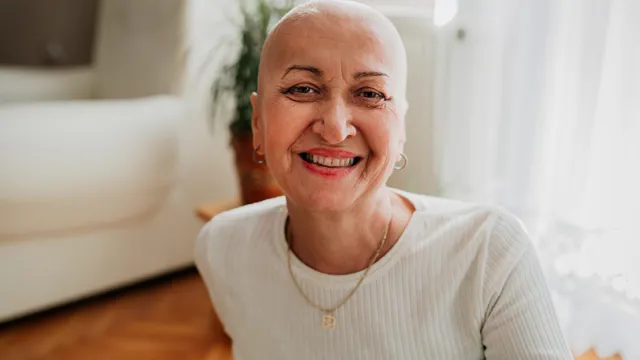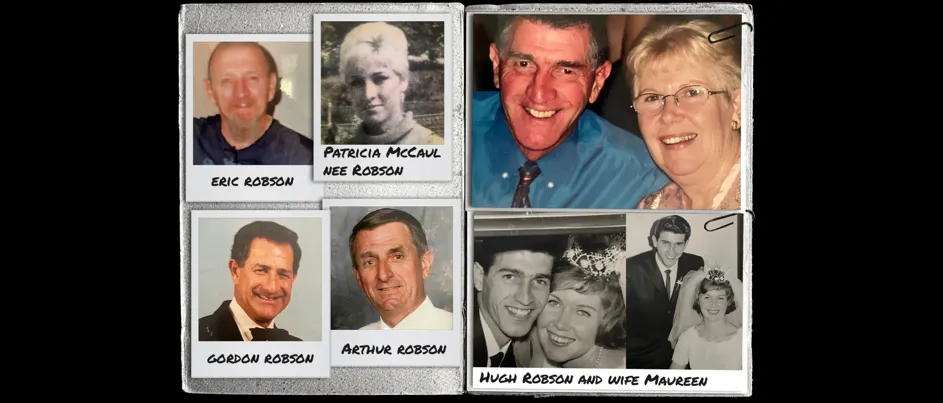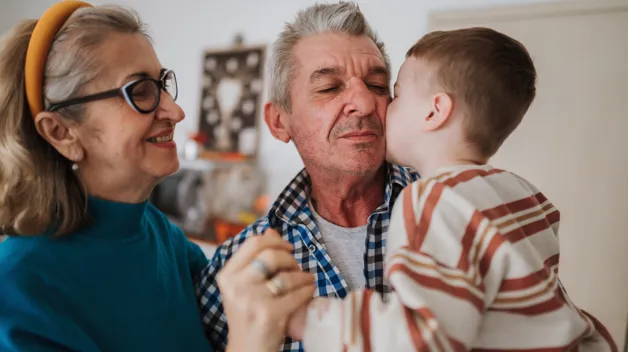
Pancreatic cancer claimed five siblings in one family. Early detection must become part of Australia’s future.

Adapted from an article by Professor Steve Robson, originally published in The Australian (3 October 2025)
Professor Steve Robson is one of Australia’s most senior clinicians. He’s spent a lifetime guiding patients through some of the hardest diagnoses, leading national health bodies, and pushing for better outcomes in medicine. But pancreatic cancer has made its mark not just on his career, it has left a devastating imprint on his family.
Five of his father’s eight siblings died from the disease. He’s amongst one of the most at-risk families for pancreatic cancer in the country, and their story underscores what so many Australians never hear: that with earlier diagnosis, the outcome might have looked very different.
I’ll see you in heaven.
Those were the last words Hugh Robson said to his brother. Days later, he passed away, a former national hockey player having undergone surgery and chemotherapy to treat the disease. His death, in May 2023, was the fifth among his siblings. Pancreatic cancer had torn through the Robson family in silence for decades, each diagnosis arriving too late to offer real options.
Shortly after Hugh’s passing, another brother, Gordon, was diagnosed. He died within three weeks. No screening or testing was ever offered.
It’s in our genes, it’s coursing through everything. It’s like a ticking time bomb in all of us.
- Steve’s cousin, Mark Robson, Gordon’s son.
By July 2023, five of eight siblings were gone. It left the surviving family reeling, and more determined than ever to change what had once seemed inevitable for the generations to come.
A legacy no family should carry
Steve Robson knows the statistics all too well, not just as a doctor, but as a son, a cousin, and a father. He knows that with more than three first-degree relatives diagnosed, his own family faces an almost 40% lifetime risk of developing pancreatic cancer. And he knows they’re not alone.
Thousands of other families in Australia are at high risk too and many don’t know it.
- Steve Robson
Despite this, Australia has been slow to take up the breakthroughs now saving lives elsewhere. In the United States, studies show that regular screening for people at inherited risk dramatically improves survival. Cancers are being found earlier, when treatment can still be effective. Here, that kind of access is rare.
The science is moving and Australia can’t get left behind.
What gives Steve hope is the momentum building in early detection, imaging and personalised treatment. Screening programs now exist that use specialised ultrasound through the oesophagus, providing a clear view of the pancreas and detecting signs of cancer earlier.
Precision medicine is reshaping how people with pancreatic cancer are treated. Genomic profiling of a tumour’s DNA can point to targeted therapies. And mRNA vaccine trials are underway, aiming to eliminate small traces of cancer cells post-surgery, or, potentially, to prevent the disease from developing at all.
But while these breakthroughs are already making a difference in global trials, few Australians have access to them. That’s where advocacy and awareness matters.
There’s no reason Australians shouldn’t be able to join these clinical trials just because they live here.
- Michelle Stewart, Pankind CEO
Here at Pankind we are lobbying to bring these clinical trials to Australians who need it the most. We are also investing in local solutions, like the APRISE screening study, and practical tools like the Family History Checker: a free, 3-minute online tool that helps people understand their risk and get referred for appropriate follow-up.
These aren’t fringe developments. They’re meaningful, potentially life-saving changes.
We cannot afford to wait
When Arthur, Steve’s uncle, died in 2006, he was one of 2,330 Australians who lost their life to pancreatic cancer that year. By 2023, the year Gordon died, that number had jumped to 4,000.
Pancreatic cancer is now the third deadliest cancer in Australia, and among the most aggressive. But for too long, it’s also been the most neglected.
Steve Robson believes that must change, and we couldn’t agree more.
Australia must change from its current hit-and-miss and deeply pessimistic approach to pancreas cancer to one focused on prevention, screening and cutting-edge precision treatment.
- Steve Robson
A fairer future is possible, if we choose it
The Robsons’ story is not unique, but it is urgent. It speaks to the kind of quiet crisis pancreatic cancer has become in Australia and what happens when risk is left ignored, and time runs out.
For Steve Robson and his family, the goal now is clear: make sure no one else is left behind. And for the rest of us, it’s a reminder that we have the tools. What we need now is to act before it’s too late.

Worried about pancreatic cancer in your family?
By answering a few quick questions about your family history, we can check your family risk of developing pancreatic cancer.

